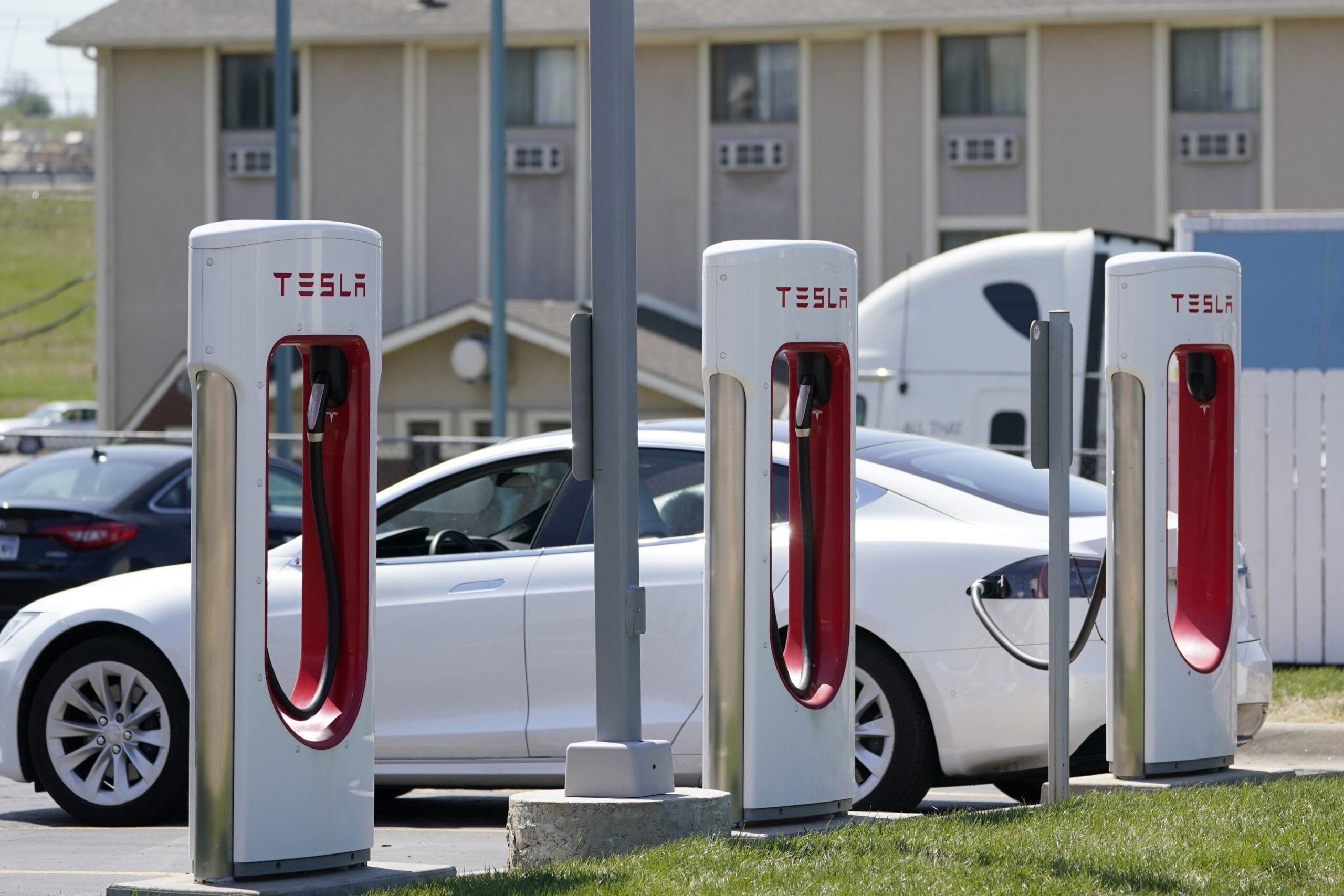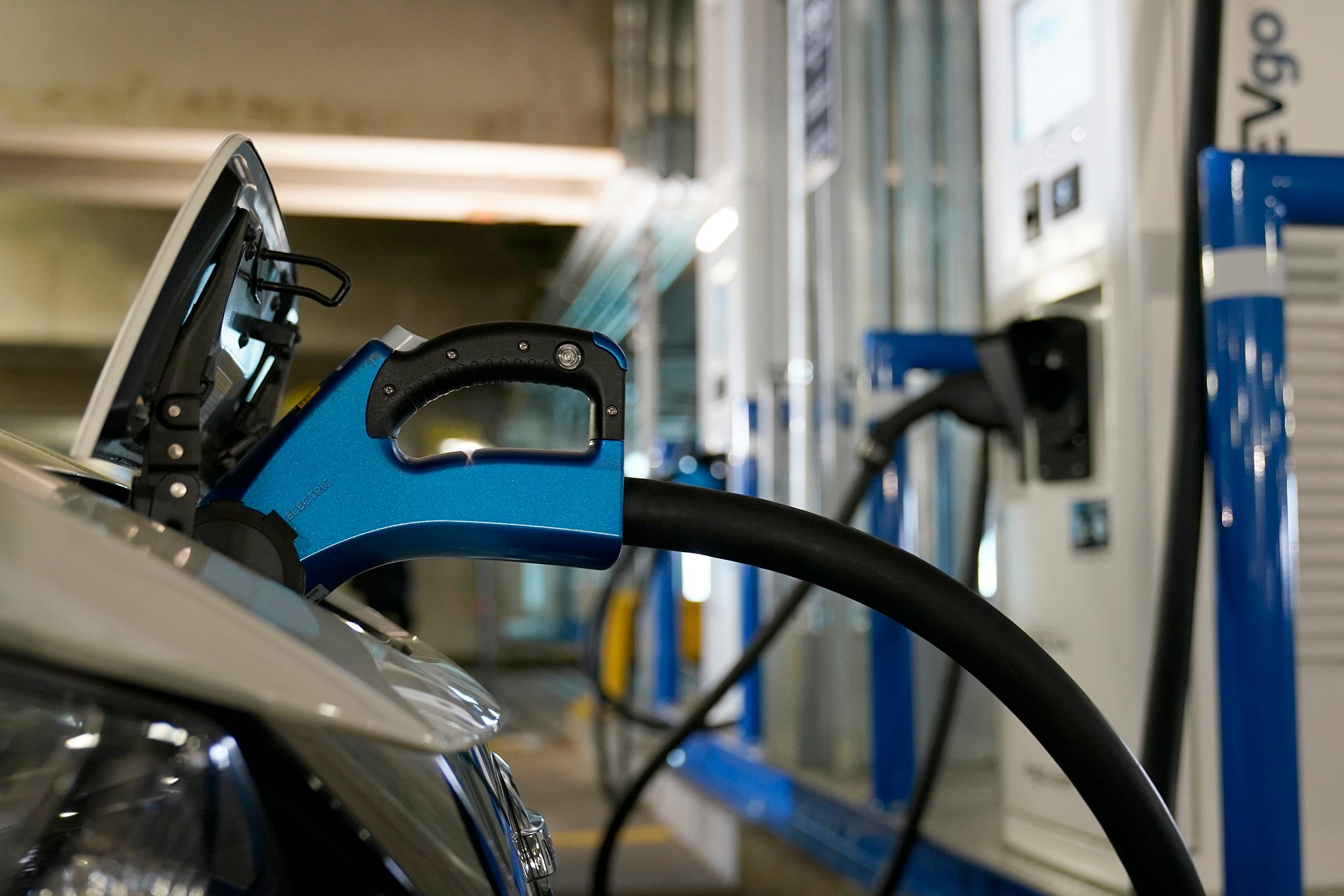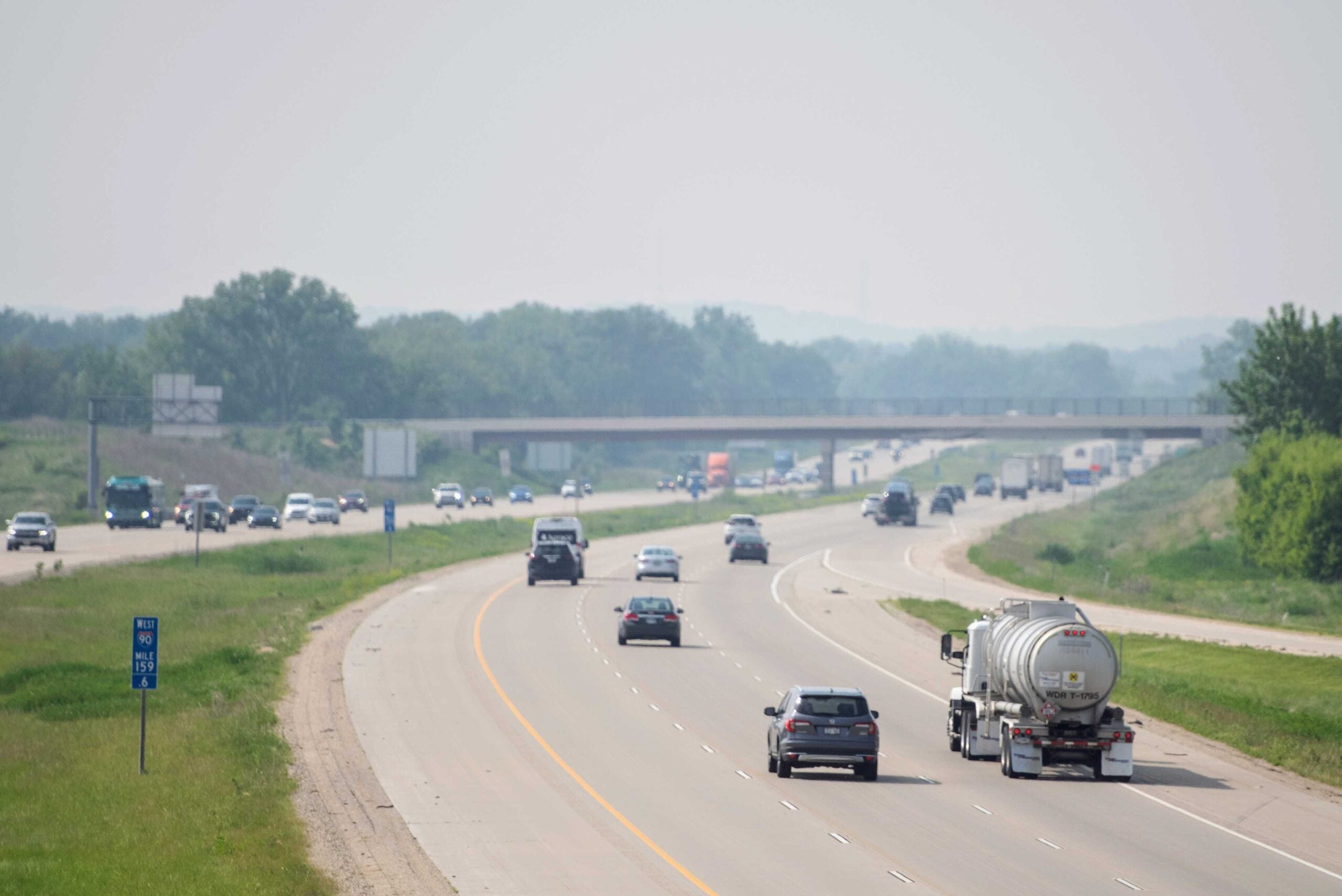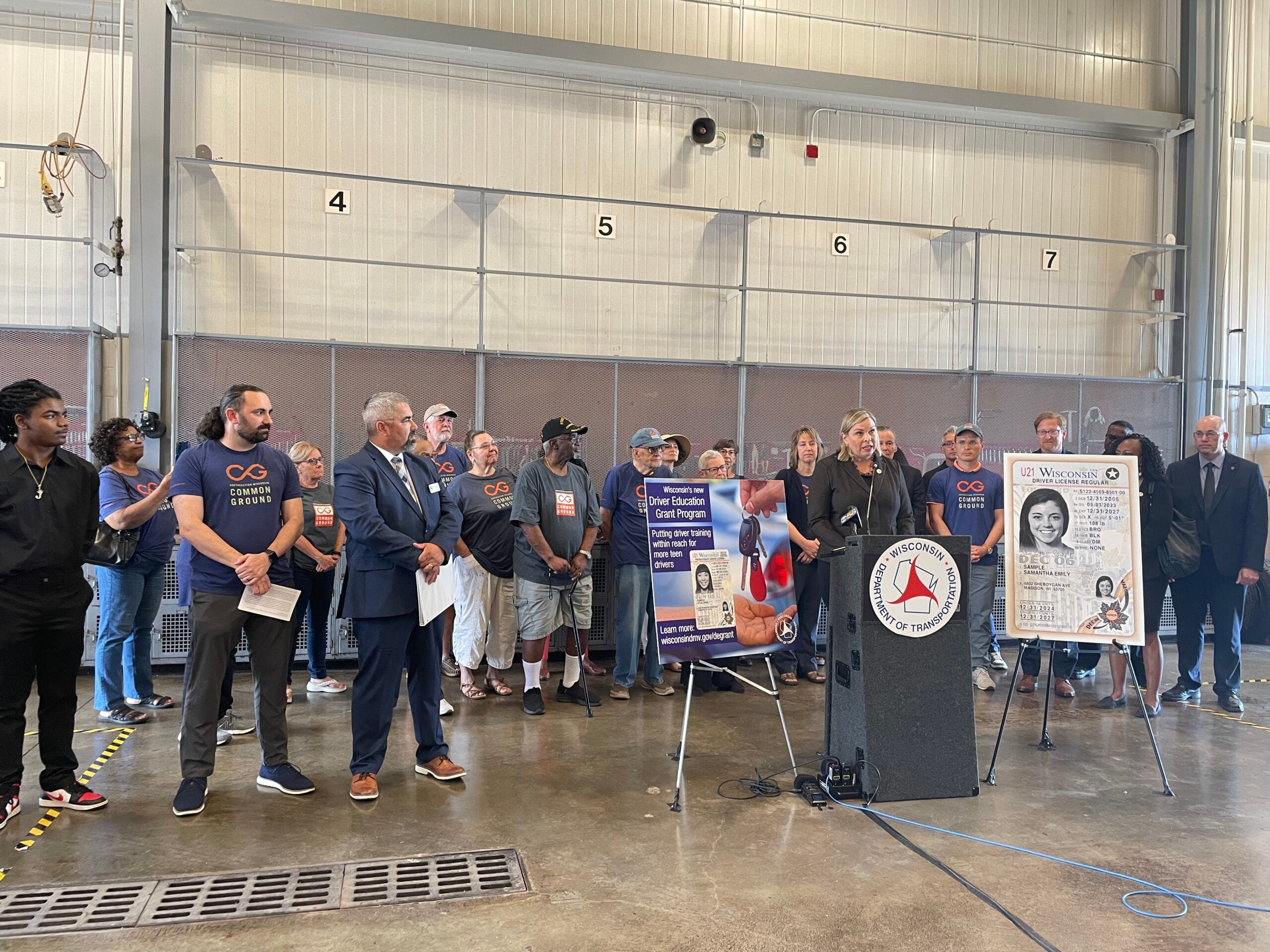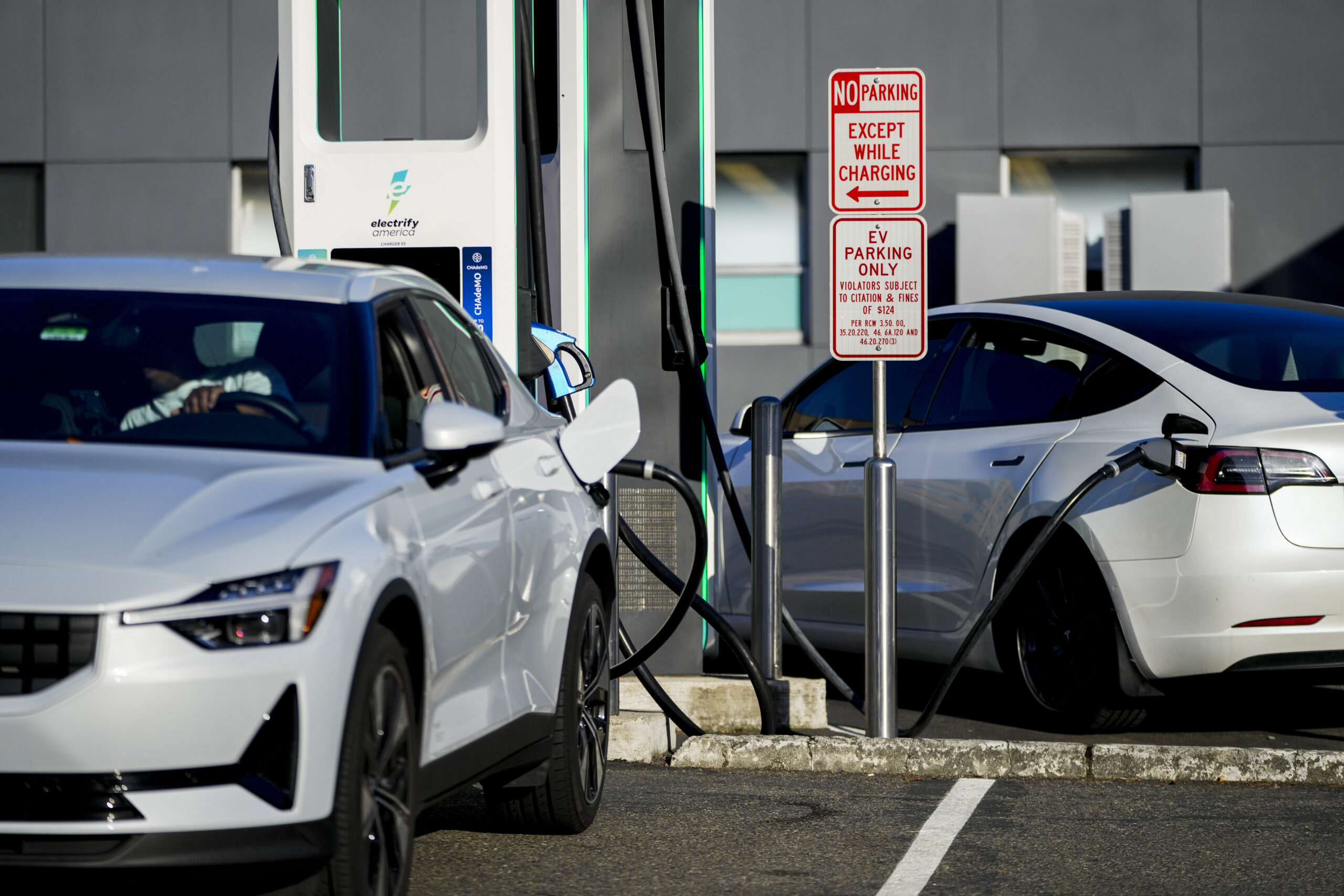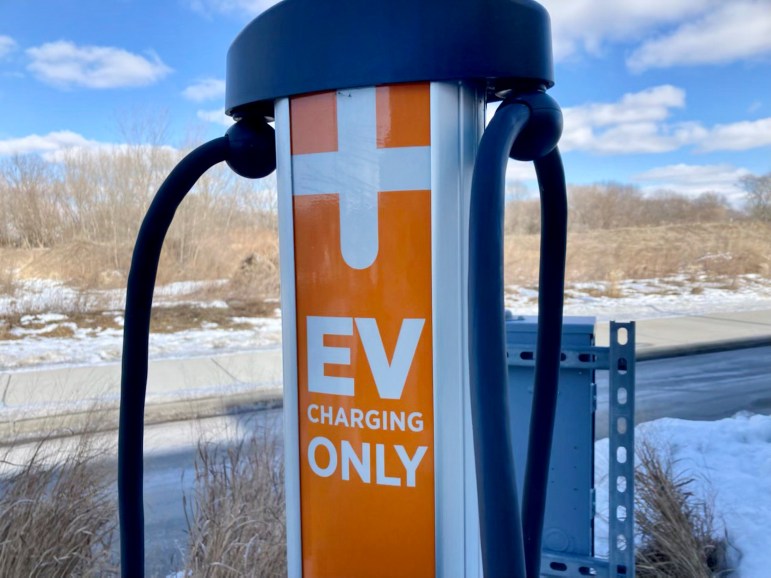Wisconsin could have many more electric vehicle charging stations in the near future if federal and state funding levels continue on their current trajectory, the head of the state Department of Transportation said Monday.
Recent increases in state funding for electric vehicle charging stations, as well as a possible $79 million over five years from the pending federal infrastructure bill, would go a long way toward expanding Wisconsin’s electric vehicle charging infrastructure, said Craig Thompson, DOT secretary.
“I think we’re going to be moving much more rapidly to electrification of our transportation system than people realize,” Thompson said on WPR’s “The Morning Show.” “It’s coming quickly, and it’ll be very good for the environment.”
News with a little more humanity
WPR’s “Wisconsin Today” newsletter keeps you connected to the state you love without feeling overwhelmed. No paywall. No agenda. No corporate filter.
Thompson said the state has groups currently working on where to put new charging stations. The state is working with private companies to coordinate where stations are located, he said, and public options need to be available in the right places.
“We have to make sure, from the public sector side, that we’ve got the grid covered,” he said.
Earlier this year, Gov. Tony Evers proposed $5 million in bonding over the next two years for electric vehicle charging stations statewide and $10 million of the state’s remaining Volkswagen emissions settlement funds for a state electric vehicle charging station grant program. GOP lawmakers who control the state Legislature rejected both proposals.
Evers also attempted to put more funding into electric vehicle charging stations through one of his vetoes of the 2019-21 state budget, but the state Supreme Court struck down the charging station veto, along with two others. Even so, Thompson said the state has been able to put more funding into such initiatives in recent years.
According to a June memo from the Legislature’s nonpartisan budget office, the number of registered electric vehicles in Wisconsin has grown by an average of 9 percent each year from 2016 to 2020.
Other proposed investments included in the federal infrastructure bill include millions of dollars for roads, bridges, public transportation and broadband internet expansion in Wisconsin. President Joe Biden visited La Crosse in June to tout his infrastructure proposals.
The bill passed the U.S. Senate last week, but it’s fate in the House of Representatives is uncertain.
Wisconsin Public Radio, © Copyright 2026, Board of Regents of the University of Wisconsin System and Wisconsin Educational Communications Board.

